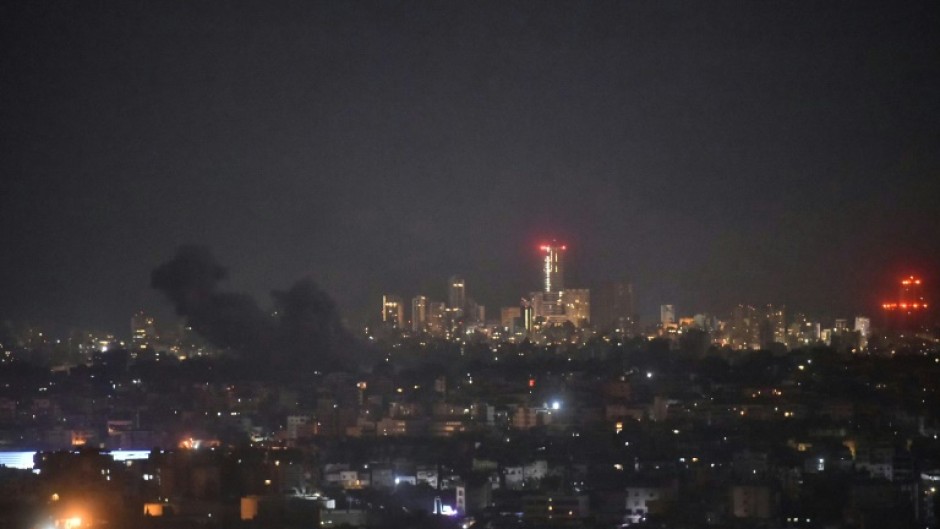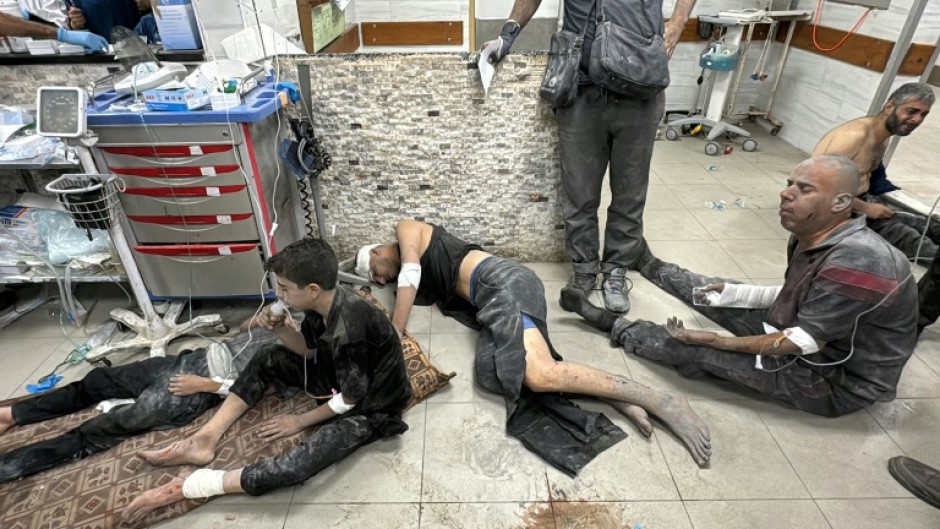The United States said Monday it wants the Israel-Hezbollah war to end "as soon as possible", as it pressed for the enforcement of a UN resolution that required the armed group to withdraw from south Lebanon.
US envoy Amos Hochstein held talks in Lebanon's capital with parliament speaker Nabih Berri, a Hezbollah ally, in a push for an end to a nearly month-long war that has killed more than 1,470 people in Lebanon.
"Tying Lebanon's future to other conflicts in the region was not and is not in the interest of the Lebanese people," Hochstein said, referring to a key Hezbollah demand that any ceasefire in Lebanon be linked to an end to the war in Gaza.
Hochstein also said that while UN resolution 1701, which ended the 2006 Israel-Hezbollah war, should be the basis for a new ceasefire, the parties had not done enough to implement it since then.
Under resolution 1701, only the Lebanese army and UN peacekeeping force UNIFIL should have been able to deploy in areas south of Lebanon's Litani River near the Israeli border.
Despite the resolution's provisions, Hezbollah remained in south Lebanon and in October last year began launching low-intensity cross-border strikes into Israel, in support of its Palestinian ally Hamas.
"The commitment that we have is to resolve this conflict based on 1701, that is what the solution is going to have to look like," Hochstein told reporters.
Resolution "1701 was successful at ending the war in 2006 but we must be honest that no one did anything to implement it," he added, saying: "Both sides simply committing to 1701 is just not enough."
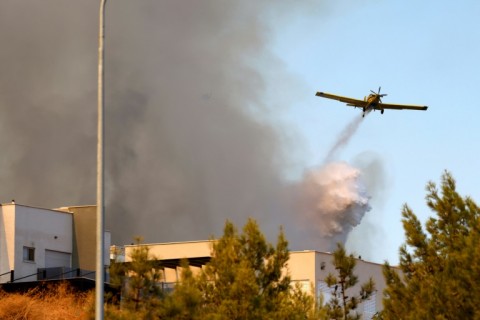
Last week, Prime Minister Najib Mikati told AFP his government was ready to bolster the army's presence in south Lebanon if there is a ceasefire.
It would start by recruiting an additional 1,500 troops into the army, and that as soon as any ceasefire is agreed it would mobilise soldiers from elsewhere in Lebanon, Mikati said.
Iran-backed Hezbollah was the only armed group that refused to disarm following the 1975-1990 civil war, and has maintained a formidable arsenal in a country wracked by political division and a weak military.
- Border fighting -
The exchanges of fire across the Lebanese border began after Hamas's October 7, 2023 attack on Israel, which resulted in the deaths of 1,206 people, mostly civilians, according to an AFP tally of official Israeli figures.
The attack sparked the Gaza war which has killed 42,603 people, a majority civilians, according to data from the health ministry in the Hamas-run territory, figures the UN considers reliable.
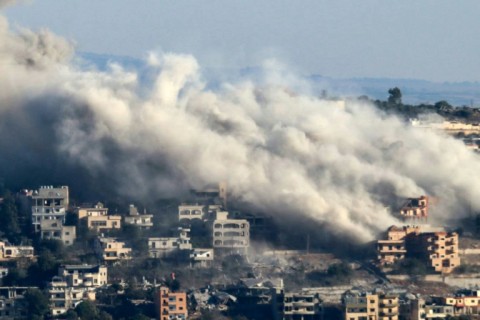
Israel expanded the scope of its war in September from Gaza to Lebanon, vowing to battle Hezbollah until it secures its northern border so that tens of thousands of Israelis displaced by cross-border fire can return home.
Hezbollah has pledged to keep up its fight against Israel until a ceasefire is reached in Gaza. On Monday it said it repeatedly targeted Israeli troops in south Lebanese border villages.
Lebanon's state-run National News Agency (NNA) reported heavy clashes in south Lebanon on Monday as the Israeli army "tried to advance".
- Escalation -
Israel conducted air strikes hitting a Lebanese association linked to Hezbollah, accusing it on Monday of financing the group's weapons as it expanded the scope of its raids beyond military targets.
In southern Lebanon, Israeli strikes hit Al-Qard Al-Hassan branches in the cities of Nabatiyeh and Tyre overnight, according to the NNA.
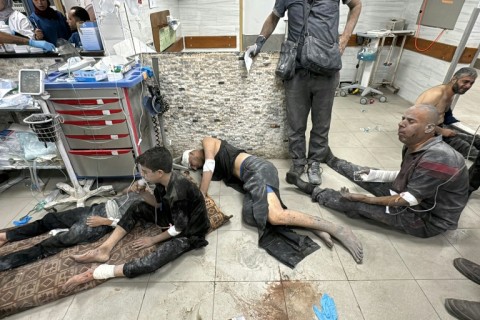
On Monday, the Israeli military said it had conducted a series of strikes against "dozens of facilities and sites" used by Hezbollah in Beirut and southern Lebanon, including on branches of the financial institution.
Israel accuses Al-Qard Al-Hassan of funding "Hezbollah's terror activities", including the purchase of weapons and payments to militants.
Hezbollah built its loyal support base in Shiite Muslim areas of Lebanon by providing protection, health, education and financial services in a state long wracked by sectarianism and corruption.
Al-Qard Al-Hassan is a Hezbollah-linked financial firm offering micro-credit in a country where the traditional banking system collapsed five years ago at the start of a crushing economic crisis.
It is sanctioned by the United States, which accuses Hezbollah of using it as a cover to mask the group's financial activities and gain access to the international financial system.
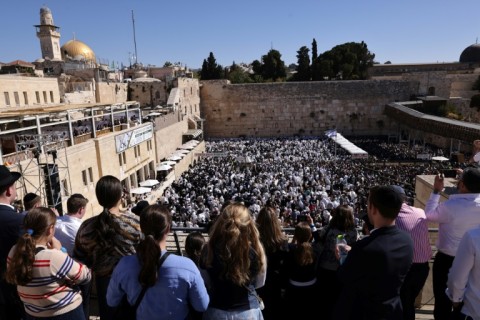
Other strikes over the weekend hit Al-Qard al-Hassan branches in Lebanon's eastern Bekaa Valley and in the country's south.
The NNA also reported a strike near Beirut's airport, the main entry-point of humanitarian assistance to the country and a major evacuation hub for those fleeing the conflict.
- 'No food' in Gaza -
In northern Gaza, the civil defence agency on Sunday said an Israeli air strike on a residential area killed 73 Palestinians Saturday in Beit Lahia.
Israel, vowing to stop Hamas militants from regrouping in the north of the Palestinian territory, launched a major air and ground assault on October 6 this year.
Tens of thousands of people are estimated to have fled the assault, and according to the UN agency for Palestinian refugees, UNRWA, around 400,000 people were trapped in northern Gaza last week.
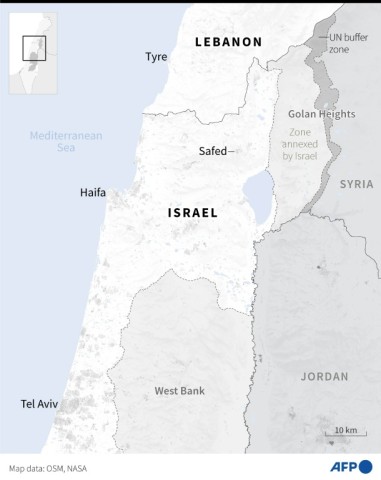
"There were smoke bombs and sound grenades, and we fled with our children, without taking anything with us -- no milk, no diapers, nothing essential for life, no blankets, no mattresses," said Shaima Naseer, who fled Beit Lahia with her children.
"As you can see, here are our children, sleeping on the ground," said the 30-year-old, holding her nine-month-old baby in her arms.
The Israeli military said it struck a "Hamas terror target" in Beit Lahia, adding that the toll figures given by Gaza authorities "do not align" with the information it possessed.
The Jeddah-based Organisation of Islamic Cooperation "condemned the strike in the strongest terms", describing Israel's actions in Gaza as a "stain on the conscience of humanity".
By Hachem Osseiran With Louis Baudoin-laarman In Jerusalem

